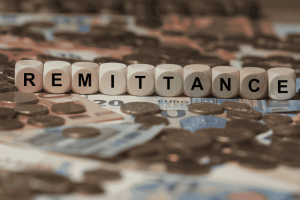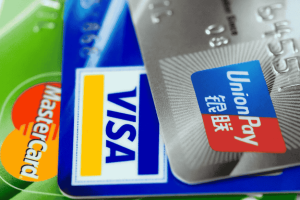Have you ever missed a bill payment and felt that sinking feeling in your stomach? You’re not alone. Life gets busy, and sometimes a due date slips by. But before you panic about your credit score, know this: a late payment doesn’t have to spell disaster. With the right steps, you can minimize the impact and keep your financial health on track.
Let’s dive into how you can handle late payments smartly, avoid long-term damage to your credit score, and even turn a mistake into a learning opportunity.
Why Do Late Payments Matter?

Your payment history is one of the most important factors in your credit score. Even a single late payment can lower your score, especially if it’s reported to the credit bureaus. This can affect your ability to get loans, credit cards, or even rent an apartment in the future.
But here’s the good news: Not all late payments are created equal, and you have options to limit the damage.
What Counts as a Late Payment?
- Grace period: Most lenders offer a short grace period (typically a few days) after the due date before charging a late fee or reporting the payment as late.
- 30 days late: Payments usually aren’t reported to credit bureaus until they’re at least 30 days overdue.
- 60/90/120 days late: The longer you wait, the more serious the consequences—higher fees, bigger credit score drops, and possible collection actions.
Immediate Steps to Take If You Miss a Payment
1. Pay as Soon as Possible
If you realize you’ve missed the due date on your credit card, loan, or bill, don’t delay—make the payment immediately. The longer you wait, the greater the risk that the missed payment will be reported to credit bureaus, which can negatively impact your credit score and make borrowing more expensive in the future.
Even a short delay can trigger late fees or penalty interest rates, so settling the amount as quickly as possible minimizes these consequences and shows lenders you’re committed to staying current.
2. Contact Your Lender or Creditor
After making the payment, call your bank, credit card issuer, or loan provider to inform them of the situation. Many lenders understand that occasional late payments happen and may be willing to work with you, especially if you have a good payment history.
Some will waive late fees or choose not to report the late payment to credit bureaus if it’s your first offense or if you communicate proactively. Being honest and polite during this conversation can improve your chances of leniency.
3. Check Your Account for Fees
Log in to your account and carefully review any charges applied due to the late payment, such as late fees or increased interest rates. Sometimes these fees can be reversed if you request a courtesy adjustment, particularly if you’re a responsible customer who rarely misses payments. If the fees aren’t waived, make sure you understand how much you owe so you can plan to avoid further penalties.
4. Monitor Your Credit Report
Regularly checking your credit report is crucial after a missed payment. This lets you confirm whether the late payment has been reported to credit bureaus and allows you to spot any errors or fraudulent activity. Many countries provide consumers with at least one free credit report per year—take advantage of this to stay informed.
If you see incorrect information, you can dispute it with the credit bureau to have it corrected. Keeping an eye on your credit report also helps you gauge how the missed payment affects your overall credit health and enables you to take steps to rebuild your score.
How to Minimize Credit Score Damage
1. Act Quickly
- Payments that are less than 30 days late often aren’t reported to credit bureaus, so quick action can prevent damage.
- Paying as soon as possible reduces the chance of late fees and interest rate hikes.
- Acting promptly shows financial responsibility and can be beneficial if you need to negotiate with your lender later.
2. Negotiate with Your Lender
- If the late payment has already been reported, contact your lender to request a “goodwill adjustment.”
- Lenders may remove the late mark as a one-time courtesy if you have a good payment history.
- Explain any valid reasons for the delay, such as temporary hardship or an honest mistake.
- While not guaranteed, many lenders are willing to work with customers who communicate openly.
3. Set Up Automatic Payments or Reminders
- Automate payments through your bank or credit card company to ensure bills are paid on time.
- Use calendar alerts, phone reminders, or budgeting apps to notify you in advance of due dates.
- These tools help create a safety net to avoid future missed payments without needing constant manual effort.
4. Keep All Other Accounts Current
- A single late payment impacts your credit score less if all other accounts remain in good standing.
- Continue making on-time payments for loans, credit cards, and other bills to maintain a positive credit history.
- Consistent timely payments help your credit recover over time and strengthen your financial reputation.
What If You Can’t Pay Right Away?

- Contact your lender immediately: As soon as you realize you’ve missed a payment, reach out to your bank or creditor. Explain your situation honestly and ask if they offer hardship programs, payment deferrals, or modified payment plans. Many lenders have options to help borrowers avoid severe penalties when facing temporary difficulties.
- Don’t ignore the problem: Avoiding the issue can lead to escalating fees, higher interest rates, and negative marks on your credit report. The longer you wait to address the missed payment, the more damage it can cause to your credit score and financial health.
- Prioritize essential bills: If funds are tight, focus on covering critical expenses first, such as housing (rent or mortgage), utilities (electricity, water, internet), and secured loans. Secured loans are backed by collateral, so falling behind on them can lead to asset repossession. After essentials, tackle other debts systematically.
How Long Do Late Payments Stay on Your Credit Report?
- Late payments typically remain on your credit report for up to seven years from the date of the missed payment.
- The negative impact on your credit score tends to decrease over time, especially if you establish a positive payment history after the late payment.
- Regularly reviewing your credit report can help you track these entries and ensure your report is accurate, giving you a clearer picture of your credit health.
Tips to Avoid Late Payments in the Future
Automate payments: One of the easiest ways to avoid missing due dates is to set up automatic payments through your bank or creditor. Automating at least the minimum payment ensures you never miss a deadline, helping you avoid late fees and negative credit report entries. Just be sure to keep enough funds in your account to cover these payments.
Use budgeting apps: Take advantage of digital tools that track your bills, due dates, and spending habits. Many apps send reminders via push notifications or email, so you’re always aware of upcoming payments. Some apps also provide an overview of your monthly cash flow, making it easier to plan and prioritize expenses.
Keep an emergency fund: Life can be unpredictable, and unexpected expenses can throw your finances off balance. Having a dedicated emergency fund means you have a financial buffer to cover urgent bills without missing payments. Aim to save at least three to six months’ worth of essential expenses.
Update your contact info: It’s important to keep your bank and creditors informed if you change your address, phone number, or email. This ensures you continue receiving important statements and payment reminders. Missing notifications due to outdated contact details can lead to accidental late payments.
Common Mistakes to Avoid
- Ignoring late payments and hoping they’ll go away: Failing to address missed payments can lead to escalating fees, increased interest rates, and damage to your credit score. It’s always better to confront the issue and seek solutions.
- Making only partial payments: Some borrowers pay less than the full amount due to cash flow issues. However, partial payments can still be reported as late or delinquent and won’t protect your credit score.
- Not checking your credit report regularly: Monitoring your credit report helps catch errors, fraud, or unreported payments early. Many countries provide free annual credit reports, and some apps offer continuous credit monitoring.
- Forgetting to update payment info after getting a new card: When you receive a replacement card, don’t forget to update any recurring payments or subscriptions linked to your old card. Otherwise, payments may fail and be reported as late.
Conclusion: Don’t Let One Mistake Define Your Credit

Missing a payment can indeed be stressful, but it doesn’t have to derail your financial future. The key is to act quickly once you realize a payment is late. Contacting your lender promptly shows responsibility and can often lead to solutions like fee waivers or payment plans. Building better habits, such as automating payments and tracking due dates, will help you avoid future issues. With these steps, you can protect your credit score and regain financial control.
Have you ever struggled with a late payment? Feel free to share your experiences, tips, or questions below. If you found this guide useful, consider sharing it with friends and family who want to maintain a strong and healthy credit profile.









